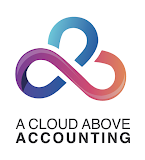Bookkeeping can often seem like a mundane task easily pushed aside for more pressing matters. But if you don’t do your bookkeeping catch-up, you could face significant financial, legal, and operational challenges that could threaten the health and longevity of your business. This guide goes into detail about the hidden risks of putting off bookkeeping catch-up. It gives you ideas and useful tips to make sure your financial records stay accurate and up to date.

Understanding Bookkeeping Catch-Up
Bookkeeping catch-up involves updating your financial records to reflect all transactions that took place during a period when bookkeeping was not consistently maintained. Plenty of businesses need to go through this process at some point, whether it’s because they’re growing quickly, staff turnover, or dealing with a lot of complicated transactions. There are many reasons why people get behind on their bookkeeping but they need to catch up in order to maintain financial health and compliance.
Common Reasons for Falling Behind
- Rapid Growth: As your business expands, the volume of transactions increases, making it challenging to keep up with bookkeeping.
- Staff Turnover: Changes in your accounting team can lead to gaps in record-keeping.
- Complex Transactions: Dealing with intricate financial transactions can be overwhelming, leading to delays in bookkeeping.
The Catch-Up Process
To catch up on bookkeeping, you need to get all the necessary documents together, like invoices, receipts, bank statements, and salary records, and enter it correctly into your financial system. This could also mean balancing the books, making changes to the records, and making sure every transaction is correctly categorized.
Financial Implications of Ignoring Bookkeeping Catch-Up
The financial consequences of neglecting bookkeeping catch-up can be severe for your business. From challenges with cash flow to inaccurate financial statements, the effects can be extensive and severe.
Cash Flow Issues
Without accurate bookkeeping, you lose the ability to track your cash flow effectively. This can lead to a range of problems, including:
- Overdrafts and Missed Payments: Without a clear picture of your cash flow, you risk overdrawing your accounts and missing crucial payments to suppliers, employees, and creditors.
- Inability to Forecast: Lack of current data makes cash flow forecasting inaccurate, making it difficult to prepare for future expenses and investments.
Inaccurate Financial Statements
Basing decisions on outdated or incorrect financial information can lead to poor business outcomes. Financial records show the health of your business in brief, and faults can:
- Distort Budgeting and Forecasting: If your financial data is wrong, your budgets and predictions will be wrong too, which will make it harder for you to make informed strategic decisions. choices.
- Mislead Stakeholders: Financial records that are correct are important for investors, creditors, and stakeholders. Misleading them can hurt your image and credibility.
Missed Deductions
Tax season becomes particularly stressful when your books are not up to date. Outdated records can result in:
- Overlooked Tax Deductions: Missing out on legitimate tax deductions due to poor record-keeping can cost your business money.
- Higher Tax Liabilities: If you keep poor records, you may end up paying more taxes than you need to, which can put a strain on your finances.
Compliance and Legal Risks
If you don’t do the bookkeeping catch-up, your business could be subject to serious legal and compliance issues. For tax compliance, lowering the risk of an audit, and following the law, it’s important to keep accurate financial records.
Tax Compliance
The consequences of failing to maintain up-to-date financial records include:
- Penalties for Late or Incorrect Filings: Missing tax filing deadlines or submitting inaccurate returns can result in fines and penalties.
- Increased Tax Liabilities: Incomplete records can lead to incorrect tax calculations, increasing your overall tax burden.
Audit Risks
Your chances of being audited by tax authorities increase when you ignore your bookkeeping. The audit process can be unpleasant and expensive, and you could be fined or penalized if issues are found with your records.
Legal Compliance
Not only are accurate financial records needed for taxes, they are also required for legal compliance. Non-compliance with industry regulations can result in legal actions, fines, and damage to your business’s reputation.

Operational Challenges
Ignoring bookkeeping catch-up has effects on operations that go beyond financial statements. It impacts decision-making processes, business partnerships, and employee morale.
Decision Making
It’s harder to make educated decisions when your financial records are out of date. Without accurate data, you might:
- Make Poor Investments: Investing in new projects or expansions without a clear understanding of your financial position can lead to financial strain.
- Miss Opportunities: Being unaware of your financial situation prevents you from taking advantage of possibilities for progress.
Business Relationships
Maintaining accurate financial records is crucial for building and maintaining trust with suppliers, creditors, and investors. Neglecting bookkeeping can:
- Damage Credibility: Key business partners may lose trust in you if your financial reports are inaccurate.
- Strain Relationships: Late payments and financial mismanagement can damage relationships with suppliers and creditors, impacting your supply chain and credit terms.
Employee Morale
Financial uncertainty can create stress and frustration among your employees. This can lead to:
- Decreased Productivity: Unclear financial health can affect employee focus and productivity.
- Higher Turnover: Financial instability can result in higher employee turnover, increasing recruitment and training costs.
Long-Term Business Health
The long-term health and sustainability of your business are directly tied to maintaining accurate and up-to-date financial records. Not doing bookkeeping catch-up can put the future of your business at risk.
Sustainability
Maintaining accurate books on a regular basis is important for the long-term success of your business. Accurate financial records help you::
- Monitor Performance: Track your business’s performance over time and make necessary adjustments.
- Plan for the Future: Create realistic business plans and strategies based on accurate financial data.
Growth and Expansion
For securing the loans and investments needed for growth and development, it’s important to keep accurate financial records. Not keeping up with your books can make it harder to:
- Secure Funding: For lenders and investors to judge the success of your business, they need to see specific financial records.
- Support Expansion: Scalability is supported by proper bookkeeping, which gives you the financial information you need to manage growth.
Reputation
Financial openness is important for upholding a good business reputation. Not doing your books can:
- Damage Your Reputation: Financial mismanagement can lead to reputational damage, affecting your relationships with customers, suppliers, and investors.
- Damage Trust: For long-term success, it’s important to maintain trust by giving accurate financial reports.
Solutions and Best Practices
If you don’t want to get caught up on your bookkeeping catch-up, implement effective methods and best practices to keep your financial records accurate and up to date.
Regular Bookkeeping Routines
Creating regular bookkeeping routines can help you stay on top of your financial records. Consider the following tips:
- Daily and Weekly Tasks: Set aside time each day or week to update your financial records and reconcile accounts.
- Periodic Reviews: Reviewing your financial records on a daily basis will help you keep them accurate and identify any issues.
- Automate Processes: Use bookkeeping software to automate repetitive tasks, reducing the chance of errors.
Hiring Professionals
Outsourcing your bookkeeping to professionals can provide peace of mind and ensure accuracy. If your business needs professional cloud accounting services, A Cloud Above Accounting can help. Benefits of hiring professionals include:
- Expertise and Accuracy: Professional bookkeepers have the knowledge and experience to maintain accurate financial records.
- Time Savings: Outsourcing bookkeeping frees up your time to focus on core business activities.
- Compliance Assurance: Professionals stay updated on tax laws and regulations, making sure your business remains compliant.
Making use of technology
Using technology can simplify and streamline your bookkeeping tasks. Take a look at these tools:
- Bookkeeping Software: Solutions like QuickBooks, Xero, or FreshBooks can automate and simplify bookkeeping processes.
- Cloud-Based Systems: Cloud-based accounting systems offer real-time access to your financial data, making it easier to manage your books from anywhere.
- Integration with Other Tools: Integrate your bookkeeping software with other business tools, such as payment processors and CRM systems, to streamline data entry and improve accuracy.
Here at A Cloud Above Accounting, we understand the challenges of bookkeeping, especially when you’ve fallen behind. We offer a range of bookkeeping catch-up services designed to help businesses of all sizes achieve financial clarity and peace of mind. Our experienced professionals can guide you through the catch-up process, ensuring your records are accurate and up-to-date. Contact us today for a free consultation and take the first step towards better financial management. Subscribe to our blog for more tips on business management and financial health.
FAQs
Accurate records are crucial for informed decisions, tax compliance, and avoiding cash flow problems.
It depends! DIY can work for small backlogs with basic accounting knowledge. For larger backlogs or complex finances, consider a professional.
Start with recent transactions, organize documents, categorize income/expenses, and set achievable deadlines.
Professional cloud bookkeeping services ensure accuracy, compliance, and real-time financial insights, freeing up your time to focus on growing your business.



